
Compound (B) is:
PhCOCH(OH)Ph
PhCOCOPh
PhCH(OH)CH(OH)Ph
PhCOCOOH
The correct Answer is:A
Topper's Solved these Questions
- ALIPHATIC AND AROMATIC ALDEHYDES AND KETONESBOOK - CENGAGE CHEMISTRY ENGLISHCHAPTER - ALIPHATIC AND AROMATIC ALDEHYDES AND KETONESEXERCISE - Exercises Multiple Correct
33 Videos
- ALIPHATIC AND AROMATIC ALDEHYDES AND KETONESBOOK - CENGAGE CHEMISTRY ENGLISHCHAPTER - ALIPHATIC AND AROMATIC ALDEHYDES AND KETONESEXERCISE - Exercises Single Correct
71 Videos
- ALIPHATIC AND AROMATIC ALDEHYDES AND KETONESBOOK - CENGAGE CHEMISTRY ENGLISHCHAPTER - ALIPHATIC AND AROMATIC ALDEHYDES AND KETONESEXERCISE - Exercises Concept Application
20 Videos
- ALCOHOL,PHENOL AND ETHERSBOOK - CENGAGE CHEMISTRY ENGLISHCHAPTER - ALCOHOL,PHENOL AND ETHERSEXERCISE - Archives Analytical And Descriptive
15 Videos
- APPENDIX INORGANIC VOLUME 2BOOK - CENGAGE CHEMISTRY ENGLISHCHAPTER - APPENDIX INORGANIC VOLUME 2EXERCISE - Short Answer Type
179 Videos
Similar Questions
i. Compound (A)
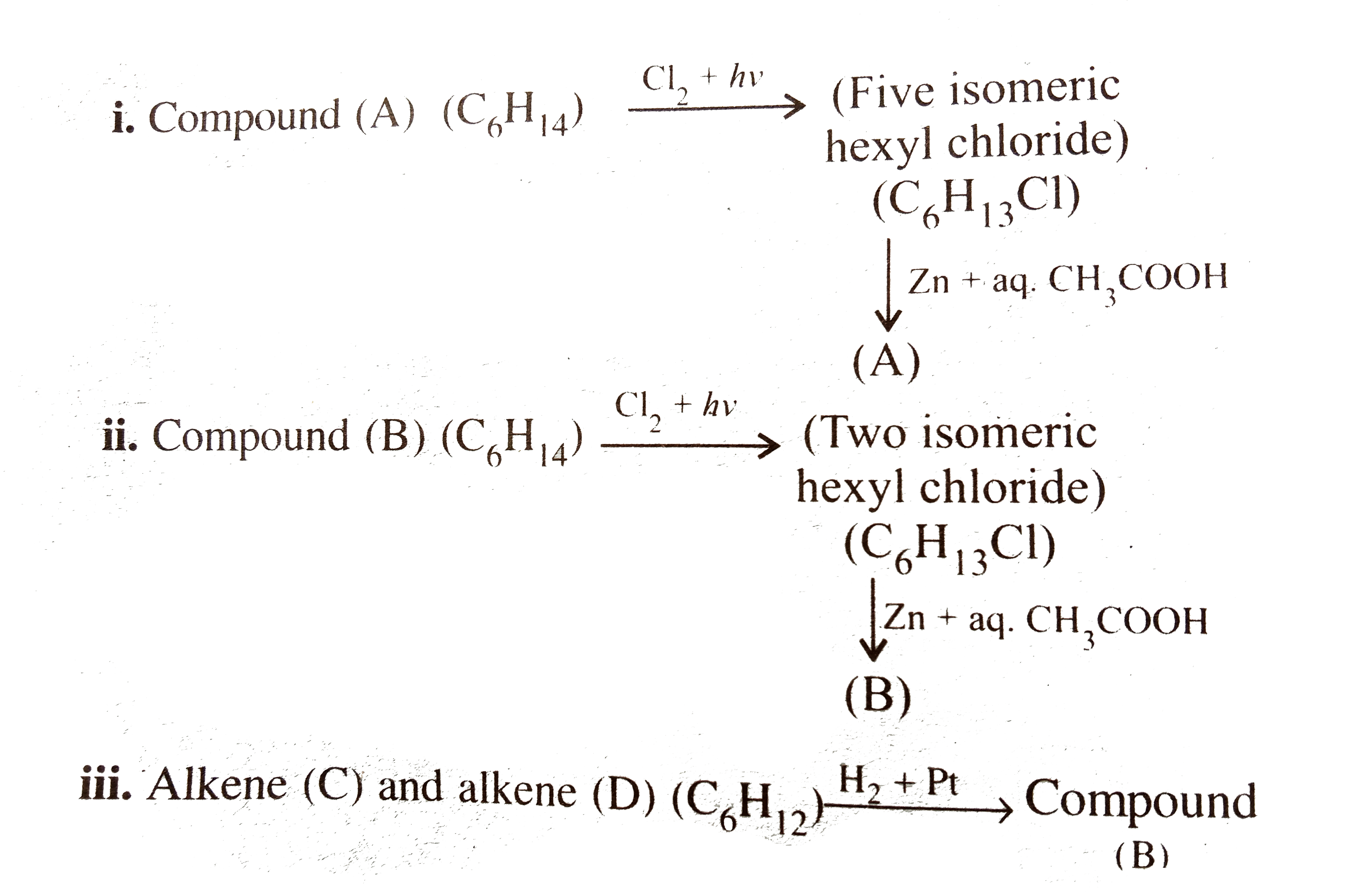
ii. Compound (B)
iii. Alkene (C) and alkane (D)
Compound (A) is:
View Solutioni. Compound (A)
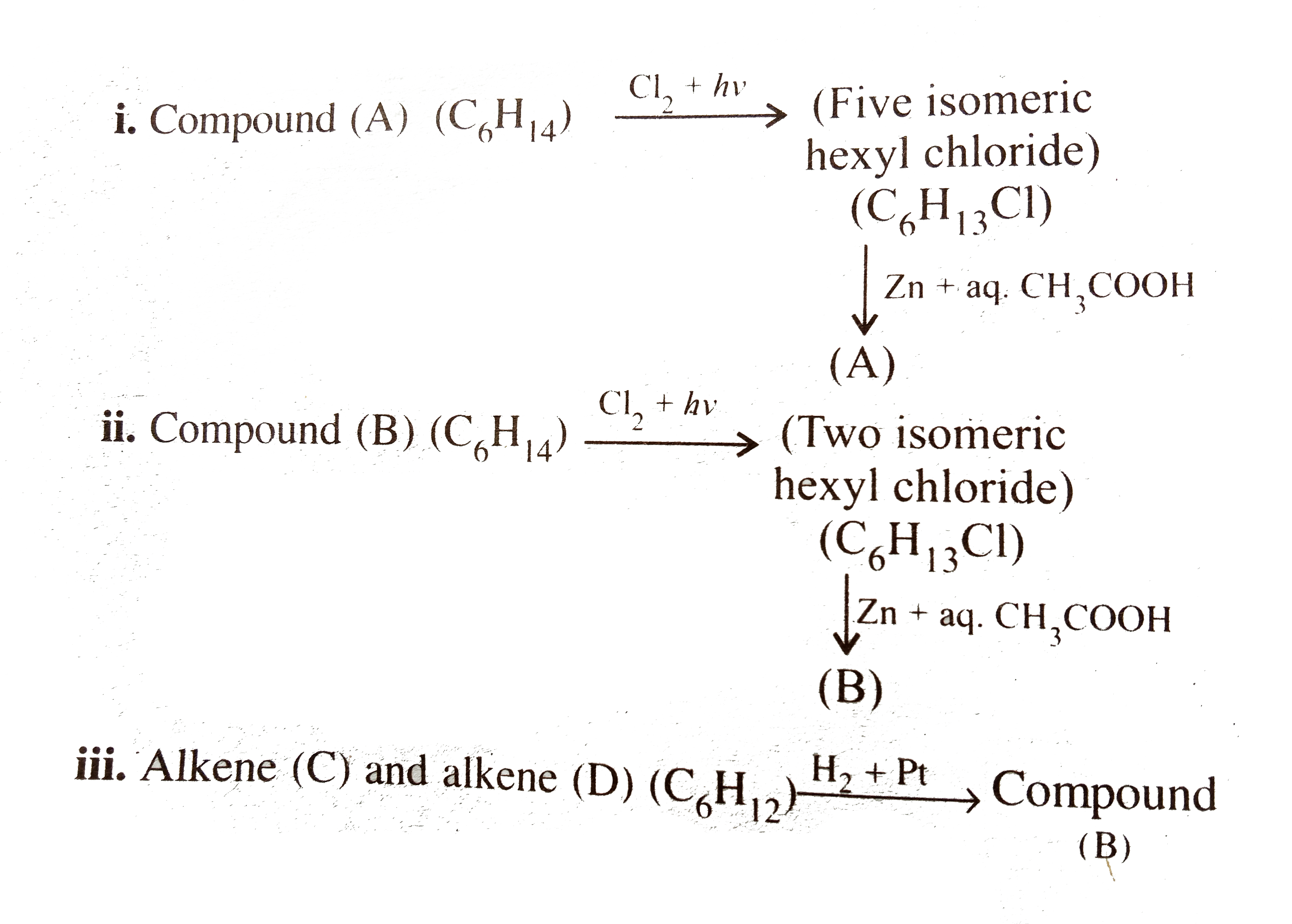
ii. Compound (B)
iii. Alkene (C) and alkane (D)
Compound (A) is:
View SolutionA compound (A) is formed by the reaction of ethylene with bromine which on reacting with aqueous KOH gives a compound (B). The compound (B) can also be prepared by the reaction of ethylene with the following:
View SolutionReduction of hexose A (molecular formula C6H12O6) with sodium borohydride gives compound B and C. Compound B is optically inactive, whereas compound C is optically active. Which of the following is compound A?
View SolutionThe compound (A) in the previous question is further hydrolysed in dilute acidic medium to give compounds (B) and (C). The compounds (B) and (C) are :
View Solution
Compounds (B) and (C ), respectively, are:
View Solution
The compound (B) and (C ), respectively, are:
View Solution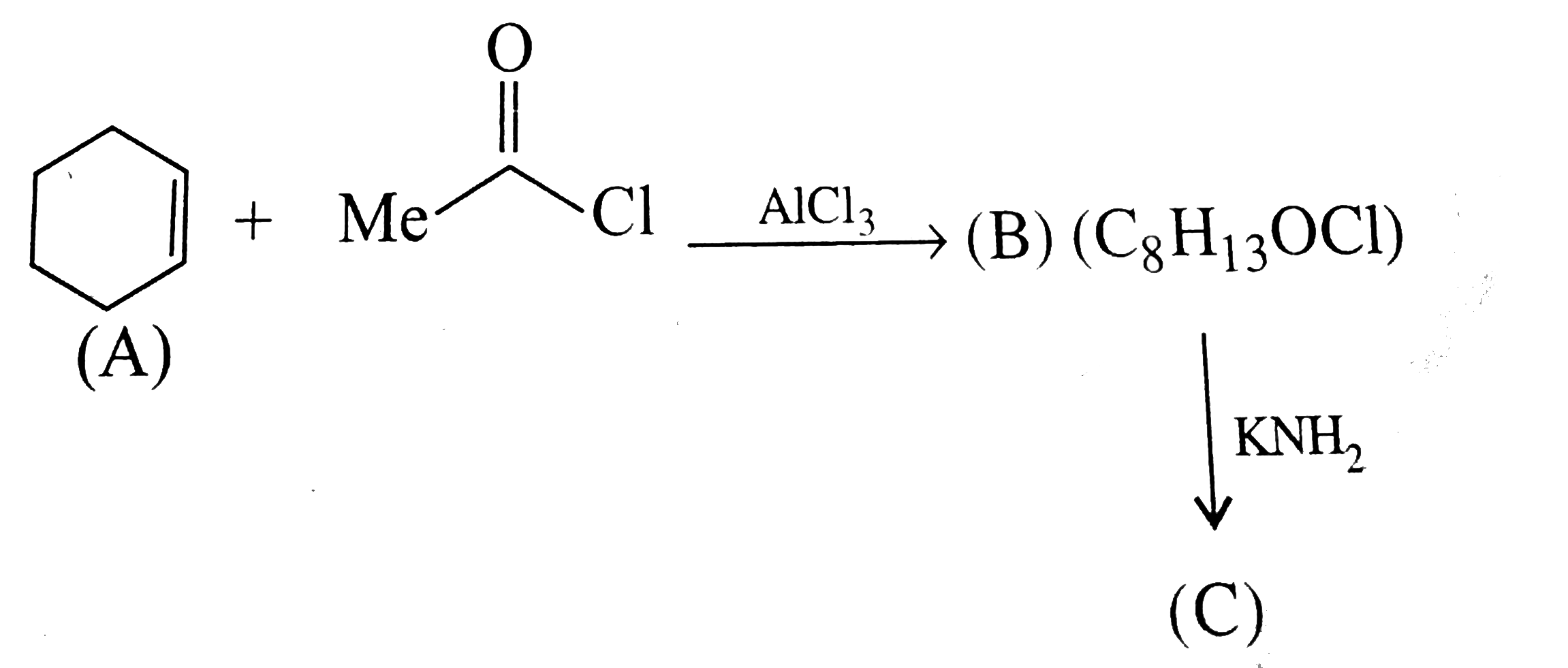
Compounds (B) and (C) respectively are:
View Solution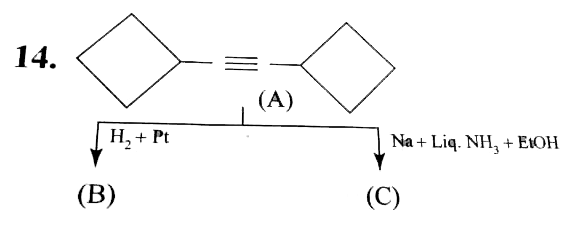
Compound (B) and (C) are :
View Solution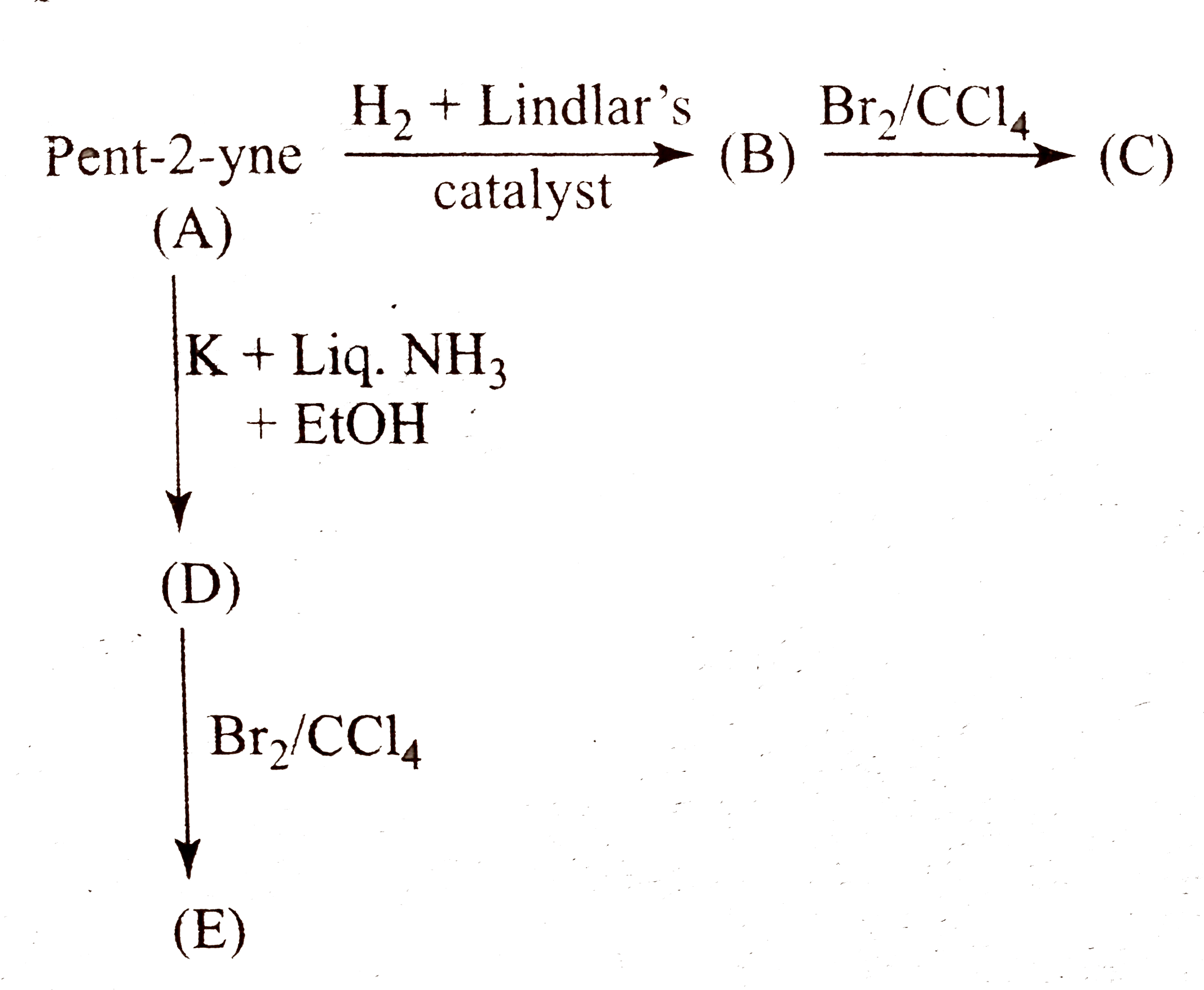
Compound (B) and (D) are, respectively :
View Solution

